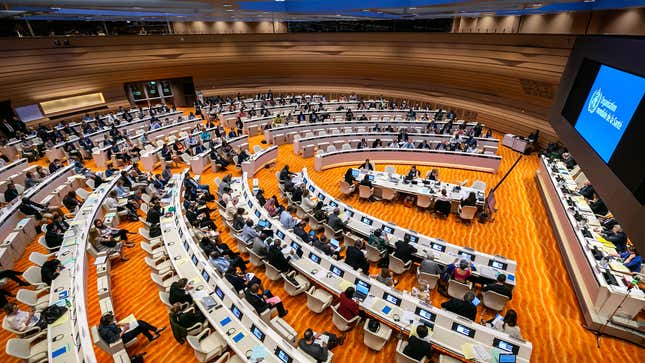
The World Health Organization has decided to add gaming disorder to its list of recognized illnesses. The 194 members of the group made the decision today at the 72nd World Health Assembly.
WHO agreed to adopt the eleventh revision of the International Statistical Classification of Diseases and Related Health Problems, which is also known as ICD-11. This new revision of the ICD includes gaming disorder as an illness. According to WHO’s ICD-11 this is the definition and characterization of gaming disorder:
“A pattern of persistent or recurrent gaming behavior (‘digital gaming’ or ‘video-gaming’), which may be online (i.e., over the internet) or offline, manifested by:
- Impaired control over gaming (e.g., onset, frequency, intensity, duration, termination, context);
- Increasing priority given to gaming to the extent that gaming takes precedence over other life interests and daily activities; and
- Continuation or escalation of gaming despite the occurrence of negative consequences. The behavior pattern is of sufficient severity to result in significant impairment in personal, family, social, educational, occupational or other important areas of functioning.”
According to Gameindustry.biz, WHO explained the decision to include gaming disorder was made by experts from different disciplines and regions and was based on reviews of available evidence.
In June of 2018, WHO finalized the ICD-11 and various video game industry organizations, such as the ESA, pushed back on the decision. Gameindustry.biz reported last year that the ESA felt the decision in June “recklessly trivializes real mental health issues like depression and social anxiety disorder.”
Today, WHO has announced the ICD-11 will go into effect on January 1, 2022.
Gaming addiction has long been a problem for some and has been a highly debated and often discussed topic among health officials, gamers, researchers and politicians. Dr. Douglas Gentile, a psychologist, and the Iowa State University’s Media Research Lab head told Kotaku in an interview in 2017 that, after surveying thousands of subjects, “We found that gaming precedes the depression if they’re damming enough areas of their life where it counts as a disorder.”
This classification and recognization of gaming disorder by The World Health Organization is a big step forward in the debate surrounding gaming addiction. Recently, members of the US Congress began creating legislation to ban addictive loot boxes.

